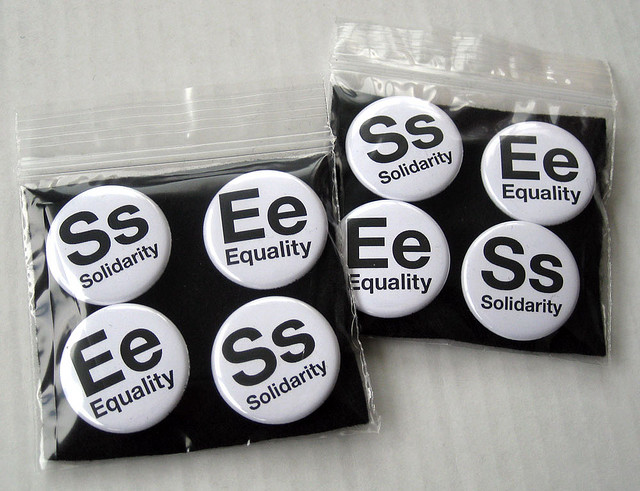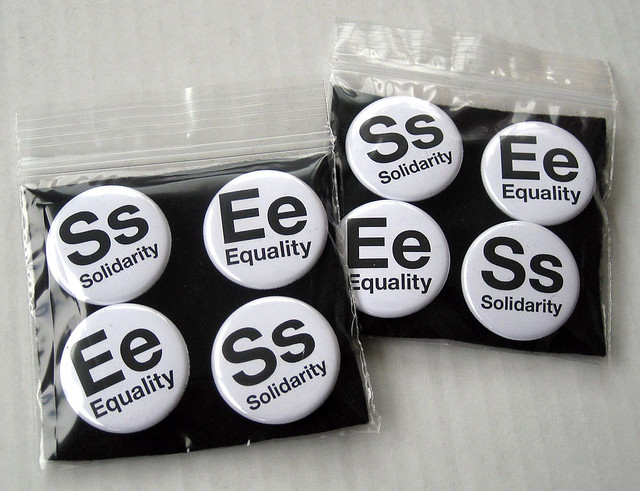This year we celebrate the European Year of Volunteering. It is estimated that in Europe 100 million people are committed to voluntary activities, and in Catalonia this group of people are almost 600.000. If we would look for a universal expression to explain what it means to be a volunteer, the result would be close to say that a volunteer is the person who carries out a certain task without being remunerated, that this task is accepted voluntarily and that it benefits people outside of his family, friends, neighbors or himself. A volunteer would be a person highly committed to the society and to certain values.
However, within the debate about society’s values and ethics, and especially in moments such as the current crisis we are experiencing, there are certain consensuses that confront us with a complicated situation. Values widely applauded, such as ethics, responsibility, solidarity, etc. imply an exemplary attitude, but unfortunately, we have deliberately marginalized this attitude by promoting its opposite values.
A prodigious decade made us grow beyond what was feasible, and now we are paying a very high cost for these excesses, not just economically, but also socially. During all these years of opulence, have we promoted altruistic behaviors as exemplary volunteerism? Unfortunately, no, we haven’t.
In the middle of the 19th century Auguste Comte coined the term “altruism” –virtue of volunteers- in opposition to selfishness. It is well-known that we live in a time where selfishness has won the game too many times. We live in times without a clear perspective, with a sensation of resignation, indignation or even hopelessness. The strong economical growth of the first decade of the 21st century made us belief that we were part of a society without limits, and made us abandon all the richness of the community’s solidarity. Inasmuch as we felt part of the miracle of a prosperous Europe, we moved away from attitudes and values that seemed to be old-fashioned in a system that was constantly generating new opportunities – even if these opportunities were fictitious-. But this trend has been reversed, and now, with half of the Catalan population with serious economic and social difficulties, we need to restore the values that we had underestimated.
A value is an attitude that improves and perfects the person from a moral point of view.
Hopefully, there are people that during the exuberance of those years kept the torch alive. There were people around us willing to swim against the tide, people who have persevered in their values and in the attitude of service towards others.
In this context, with the goal to raise challenges for a volunteerism that faces a complicated social situation, the II European Volunteering Congress will be held in Barcelona during the 9th, 10th and 11th of November. It will be an excellent opportunity to take the pulse of a society that insists on defending the public services and social commitment, but that needs to find new referents and compasses to guide us towards a credible horizon. Being a volunteer means not ceasing to understand and commit to the social environment. When things go well, but especially when future looks bleak. Simple and complex at the same time.
Originally published by Bloc de xarxanet.org, 04 november 2011

Oriol Illa, Director of the Fundació Francesc Ferrer i Guàrdia, explains us why is necessary to restore the values of volunteering, that we have underestimated. According to the author, being a volunteer “means not ceasing to understand and commit with the social environment”, in good times and bad.











Afegeix un comentari nou